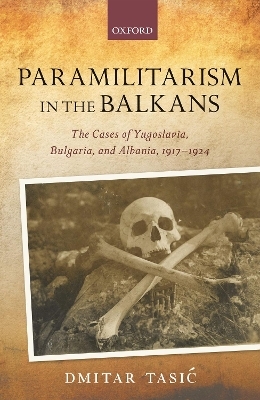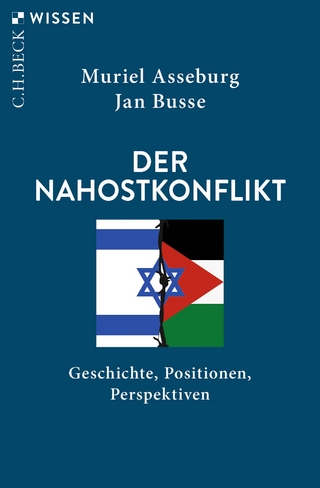
Paramilitarism in the Balkans
Oxford University Press (Verlag)
978-0-19-885832-4 (ISBN)
Paramilitarism in the Balkans analyses the origins and manifestations of paramilitary violence in three neighbouring Balkan countries - Yugoslavia, Bulgaria, and Albania - after the First World War. It shows the role of paramilitarism in internal and external policies in all three states, focusing on the main actors and perpetrators of paramilitary violence, their social backgrounds, motivations, and future career trajectories. Dmitar Tasić places the region into the broader European context of booming paramilitarism that came as the result of the first global conflict, dissolution of old empires, the creation of nation-states, and simultaneous revolutions. While paramilitarism in most post-Great War European states was the product of violence of the First World War and brutalization which societies of both victorious and defeated countries went through, paramilitarism in the Balkans was closely connected with the already existing traditions originating from the period of armed struggle against Ottoman rule, and state and nation building projects of the late-nineteenth and early-twentieth centuries. Paramilitary traditions were so strong that in all subsequent crises and military conflicts in the Balkans the legacy of paramilitarism remained alive and present.
Dmitar Tasić is a Research Fellow at the Philosophical Faculty, University of Hradec Kralove, Czech Republic. His primary research interests are related to the history of the Yugoslav armed forces, both in the inter-war and post-1945 periods, paramilitary organizations, and paramilitary violence in the Balkans, Yugoslav secret services and special operations units, and Yugoslav involvement and place within Cold War context. From 2000 to 2014 he worked as a Research Fellow at the Military History Institute in Belgrade, Serbia. In 2014, he was awarded the Irish Research Council Post-Doctoral Fellowship, and in 2016 he was a Research Fellow at the Center for Advanced Studies in Sofia, Bulgaria. In 2017-2018, he participated in the collaborative project War and Citizenship: Redrawing the Boundaries of Citizenship in the First World War and Its Aftermath at the Department of Humanities, University Frederic II, Naples, Italy.
Introduction
1: Origins
2: Demobilization vs. Mobilization
3: Balkan borderlands
4: New Context + Traditional Methods = Unexpected Outcomes
5: The Age of Coups d'état
6: Individuals and organisations
7: Legacies
Conclusion
| Erscheinungsdatum | 10.09.2020 |
|---|---|
| Reihe/Serie | The Greater War |
| Zusatzinfo | 12 black and white figures/illustrations |
| Verlagsort | Oxford |
| Sprache | englisch |
| Maße | 162 x 241 mm |
| Gewicht | 600 g |
| Themenwelt | Geisteswissenschaften ► Geschichte ► Regional- / Ländergeschichte |
| Geschichte ► Teilgebiete der Geschichte ► Militärgeschichte | |
| ISBN-10 | 0-19-885832-9 / 0198858329 |
| ISBN-13 | 978-0-19-885832-4 / 9780198858324 |
| Zustand | Neuware |
| Haben Sie eine Frage zum Produkt? |
aus dem Bereich


